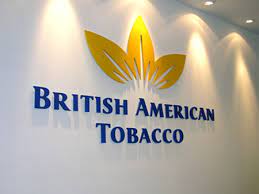 By Staff Writer
By Staff Writer
02:10:2021
Leaked documents indicate that an investigation by BBC’s Panorama, the Bureau for Investigative Journalism and the University of Bath (OCCR) concluded that British American Tobacco (BAT) used spying, bribery, corruption, and even fraud to undermine competitors in the South African tobacco market.
At the heart of this operation was the constraining South African market, which saw smoker numbers decrease from 33% in the late 1990s to around 20% by 2017, with legislation together with advocacy campaigns successfully stalling cigarette uptake. Furthermore, local competitors such as Carnilinx commenced operating in the market. More importantly, they distributed their product at less than half the cost of those manufactured by BAT, placing pressure on BAT’s revenue generation.
Methods included bribing security officials to carry out raids on competitors’ properties to obtain invoices and pictures of equipment; monitoring competitors’ phones and premises, including through the use of traffic cameras; tracking competitor vehicles with tagging devices; and even bribing officials to impound competitor vehicles long enough for their tobacco to become mouldy, to stop it from being able to be used to manufacture cigarettes. BAT funded these activities to the tune of over R600 million between 2012 and 2016, using a South African company, Forensic Security services (FSS).
Significant evidence pointed to the knowledge and influence of BAT’s UK headquarters, which oversaw operations, including paid invoices, to 3 former British military agents tasked with training FSS.
“BATSA management had me trained in industrial espionage by ex-UK military intelligence agents … We were trained in vehicle tracking systems, counter-surveillance and information peddling. We were tasked to spy on local cigarette manufacturers,” said François Van De Westhuizen in a statement to the Western Cape High Court.
BAT has denied these activities, arguing that it was assisting law enforcement to combat the trade in illicit cigarettes. However, evidence and the testimonies of former BAT agents, including the infamous Belinda Walter, paint a different picture. Walter even penetrated the independent tobacco producers Fair-Trade Independent Tobacco Association, feeding information to BAT and South Africa’s State Security Agency. The company even paid some operatives with pre-paid “Travelex” cards, which can be used worldwide without traceability to avoid paper trails being created; individuals often use these cards for money laundering.
Former SARS official Johann Van Loggerenberg argues that punishment was necessary to stop the appeal of further such activities. Till now, no charge has stuck with BAT. The same documents also pointed to the company dispersing between $300 and $500 in funding to Robert Mugabe’s Zanu PF party in 2013 to secure the release of three operatives caught for spying on Savanna Tobacco’s production facilities in Zimbabwe. Further, in 2016 Panorama also found that the company had bribed officials in East Africa to weaken anti-smoking regulations.
BAT remains one of the UK’s largest ten companies and controls brands like Lucky Strike, Pall Mall and Dunhill. In 2020, it was responsible for the manufacture of over 650 million cigarettes.







0 Comments